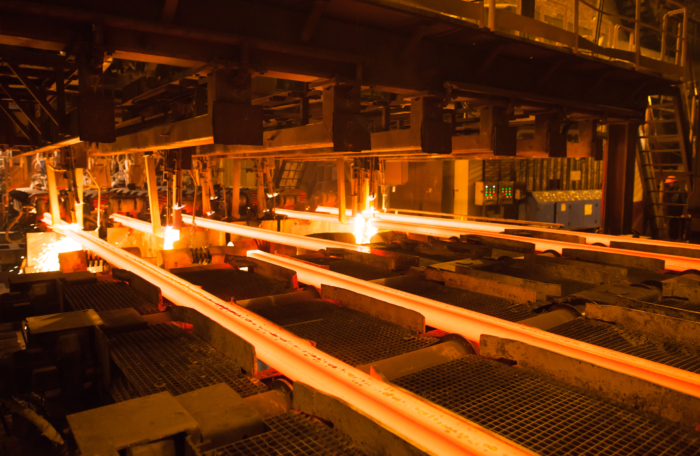Requiring U.S. steel in N.H. public projects would hurt taxpayers and workers
With inflation at a 40-year high and March approaching the highest one-month gas price increase on record, this would be a strange moment for legislators to purposefully inflate public works costs for taxpayers. But that could happen, started by a Senate vote this week.
Senate Bill 438 would raise costs on New Hampshire taxpayers for the sole purpose of protecting jobs in Pennsylvania, Michigan, Ohio, Illinois, Indiana and New York. It has 14 co-sponsors, 58% of the Senate.
The bill would require all state-administered public works projects of $1 million or more to use American-made steel. Similar bills are being pushed by the steel industry in state legislatures around the country. It is a classic example of protectionism masquerading as patriotism.
The effect would be a politician-imposed transfer of wealth from New Hampshire taxpayers to the $100 billion American steel industry.
The bill’s fiscal note states that the cost is indeterminable “due to wide-ranging price fluctuations for these goods, supply-chain shortages, and US imposed tariffs.”
But it’s well-established that the effect of such protectionist laws is to increase prices.
“Buy America rules prohibit customers from buying less expensive steel from overseas suppliers for use in public works projects,” the Congressional Research Service concluded in 2015.
Compliance costs for “buy America” laws also raise end prices, the Congressional Research Service pointed out.
“Other direct costs associated with Buy America are mainly related to administering and enforcing its requirements, costs that are mostly absorbed by state and local government project sponsors. These costs include the effort required by contractors to document the national origin of iron, steel, and manufactured products and agency administration of the certification process. Extra work may also be required of contractors to put together two bids for a given project, one incorporating domestic products and one with foreign products. Waiver requests, another cost, may be prepared by the state or local government project sponsor alone or in cooperation with the contractor.”
Then there are the project delays, which also increase costs.
“Buy America may make it more time-consuming to complete transportation projects, ultimately causing higher project costs. Delays can arise from domestic supply problems and the waiver application process.”
Federal “buy America” requirements for rail cars led to municipal rail systems providing commuters with inferior cars at inflated prices.
It’s also well-established that industry protectionism costs more jobs than it saves and hurts domestic industries in the long run.
A 2017 study by Australian economists found that buy America requirements protected 57,000 U.S. manufacturing jobs while reducing overall U.S. employment by 363,000. According to that study, ending federal Buy America provisions would increase employment in New Hampshire by more than 800 jobs.
Studies have detailed how protections for specific industries at the national level just transfer wealth from consumers to politically favored industries, sometimes costing consumers millions of dollars per job saved.
They do so in the name of protecting manufacturing jobs from foreign competition, when in fact manufacturing job losses are primarily the result of productivity gains.
That is particularly true for the steel industry. In 1980, it took 10.1 man hours to produce a ton of steel. By 2017, it took just 1.5 man hours.
U.S. steel industry productivity since the 1960s has been driven by two primary factors: technological gains and competition. Contrary to protectionist dogma, competition helps U.S. industries by making them more productive and more competitive.
The U.S. steel industry is no exception, having been helped by imports.
The bill anticipates increased costs. It allows a waiver for the following conditions:
(1) Application of the project would be inconsistent with the public interest;
(2) The product is not produced or fabricated in the United States and that it would be in the public interest to provide a waiver;
(3) The item for which a waiver is being requested is not produced and fabricated in the United States in sufficient and reasonably available quantities and of satisfactory quality; or
(4) Alternate bidding procedures were used and the lowest overall total bid based on using domestic fabricated structural steel was at least 25 percent more than the lowest overall total bid based on using foreign steel.
Exception No. 4 indicates clearly that costs are expected to rise. It would write into law the presumption that cost increases of up to 24.99% are acceptable to legislators. That’s remarkable.
If that weren’t enough, SB 438 could lower employment in New Hampshire for the purpose of increasing it in Pennsylvania.
The effect of the law would be to raise the price of raw materials for public works projects. If those costs are large, contractors could seek to recoup them by hiring fewer employees. The result would lower employment in New Hampshire.
American industries grow strong through competition, not coddling. If American steel is competitive, New Hampshire contractors will use it. If it isn’t, then forcing them to use it only raises costs and lowers quality.
If other countries subsidize their industries, that should be addressed at the federal level. Preventing New Hampshire public works projects from using Canadian steel won’t have any effect on China’s state industrial policies. It will just make it harder for New Hampshire projects to be completed on time and at the best possible price.



